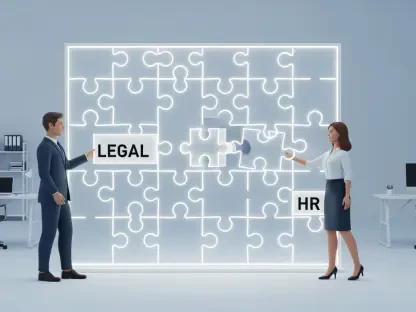The recent changes in the enforcement of the Foreign Corrupt Practices Act (FCPA) under the Trump Administration have created a new landscape for compliance programs. Companies now face a unique set of challenges and opportunities as they navigate these alterations. This pause in FCPA enforcement has introduced uncertainty into the corporate integrity world, raising questions about the future of FCPA enforcement and compliance requirements. Despite this, experts unanimously stress the importance of maintaining robust anti-corruption measures, emphasizing that companies should not slacken their efforts to uphold ethical business standards and avoid the risks of future investigations.
Current State of FCPA Enforcement
The Trump Administration’s decision to pause the Department of Justice (DOJ) enforcement of the FCPA for 180 days has led to a significant shift in how companies perceive their compliance obligations. This temporary halt has prompted organizations to question their current practices and reconsider their focus on anti-corruption protocols. The immediate impact of this pause is a sense of uncertainty regarding the future of FCPA enforcement, with many companies left wondering whether they should modify their compliance programs. However, it is important to note that despite the pause in enforcement, maintaining robust compliance programs remains crucial.
Experts in the field strongly advise against reducing anti-corruption measures during this period of uncertainty. Matthew Sullivan and the Bracewell team highlight that companies should act as if FCPA enforcement is still in full force. This proactive approach ensures continued adherence to ethical standards, minimizes the risks associated with potential future investigations, and helps organizations stay prepared for any changes in enforcement policies. By maintaining rigorous compliance programs, companies can safeguard their reputation, avoid significant financial penalties, and ensure that their business practices remain above board.
Continued Importance of Compliance Programs
In the face of reduced enforcement, companies might be tempted to lower their guard when it comes to their compliance programs. However, experts universally emphasize the need for organizations to maintain strong anti-corruption measures. Adhering to stringent compliance standards is crucial for not only preventing bribery but also for averting other legal consequences that might arise from lax anti-bribery measures. Ensuring a robust compliance framework helps in fostering ethical business practices and protects the organization from various risks.
Matthew Sullivan and other experts stress the importance of a proactive approach to compliance, suggesting that companies should act as though FCPA enforcement continues unabated. Upholding a comprehensive compliance program becomes a critical strategy for mitigating risks and preserving the integrity of business operations. Organizations should continue to invest in their compliance resources, regularly review and update their anti-corruption policies, and ensure that all employees are well-versed in ethical business conduct. By doing so, companies can effectively manage compliance risk and demonstrate their commitment to upholding high moral and ethical standards in all their dealings.
Global Implications and Jurisdictions
While the U.S. may have temporarily paused its FCPA enforcement, the international context of anti-corruption laws remains significant. The global nature of anti-corruption regulations means that companies operating in multiple jurisdictions must still navigate various legal frameworks, such as the UK Bribery Act and EU anti-corruption laws. These laws may compensate for the reduced U.S. enforcement and continue to apply stringent anti-bribery standards. Therefore, it is imperative for companies to maintain compliance with these international regulations to avoid legal repercussions and safeguard their global operations.
Navigating these international laws requires a comprehensive compliance strategy that adapts to different jurisdictions. This involves ensuring that compliance programs are consistently implemented and monitored across all countries where the company operates. Organizations must stay informed about the latest developments in international anti-corruption regulations and adjust their policies accordingly. By doing so, companies can effectively manage global compliance risks and uphold their commitment to ethical business practices. The international reach of anti-bribery laws underscores the necessity of sustaining diligent compliance efforts, even in the face of reduced FCPA enforcement by the U.S. authorities.
Maintaining and Adjusting Compliance Programs
Adapting compliance programs to align with the current enforcement landscape is crucial for companies aiming to navigate the complexities of anti-corruption regulations effectively. Experts recommend that organizations maintain rigorous monitoring and documentation practices to ensure ongoing compliance. This involves regularly reviewing and updating compliance policies, conducting thorough internal audits, and implementing robust training programs for employees. By staying vigilant and proactive, companies can mitigate potential risks and maintain their commitment to ethical business conduct.
The Bracewell team advises companies to prepare to adjust their compliance resources wisely, considering the shifts in enforcement priorities. This may involve reallocating resources to areas that require more attention, such as high-risk markets or third-party relationships. Companies should also focus on enhancing their due diligence processes, particularly when dealing with mergers and acquisitions, foreign partners, and vendors. Regular risk assessments and continuous monitoring of compliance efforts are essential to identify and address any weaknesses in the program. By maintaining and adjusting compliance programs effectively, organizations can navigate the current enforcement landscape while upholding the highest standards of integrity and ethical conduct.
Effects on Corporate Enforcement and Self-Disclosure
The Trump Administration’s pause on FCPA enforcement could potentially influence the DOJ’s corporate enforcement program and the thresholds that prompt voluntary self-disclosures from companies. This change in enforcement priorities necessitates a reassessment of self-disclosure strategies by organizations. Companies must carefully weigh the potential benefits and risks of voluntarily disclosing any breaches of anti-corruption laws under the current administration. This involves considering the legal, financial, and reputational implications of such disclosures in the context of the altered enforcement landscape.
Experts suggest that despite the pause, companies should continue to prioritize transparency and cooperation with regulatory authorities. Voluntary self-disclosure can demonstrate a company’s commitment to maintaining high ethical standards and addressing any compliance issues proactively. However, it is crucial to thoroughly analyze the specific circumstances and potential outcomes of self-disclosure before proceeding. By adopting a strategic approach to self-disclosure, companies can balance the need to comply with legal requirements and manage the potential risks associated with the current enforcement pause. Staying informed about any updates in FCPA enforcement policies is essential for making informed decisions regarding self-disclosure.
Implications for Current Investigations and Compliance Monitorships
Organizations currently under investigation or subject to corporate compliance monitorships may be impacted by the Trump Administration’s enforcement pause. Companies undergoing scrutiny might seek to argue for the cessation of such oversight based on the new enforcement priorities. This shift could potentially lead to changes in the way ongoing investigations are conducted and the extent of compliance monitoring required. However, it is important for companies to navigate these changes carefully to balance compliance requirements with the altered enforcement landscape.
Companies involved in ongoing investigations must continue to cooperate fully with regulatory authorities and maintain transparency in their operations. This includes providing necessary documentation, addressing any identified compliance gaps, and implementing corrective measures when needed. The focus should remain on demonstrating a commitment to ethical business practices and maintaining robust compliance programs. By doing so, companies can effectively manage the potential implications of the enforcement pause on their compliance monitorships and investigations, ensuring that their business operations align with the highest standards of integrity.
Impact on Cross-Border M&A Due Diligence
The changes in FCPA enforcement may affect Mergers and Acquisitions (M&A) due diligence processes, particularly in cross-border transactions. Companies involved in M&A activities must remain vigilant in their due diligence efforts despite the perceived reduction in enforcement. Conducting thorough due diligence is essential to uncover any compliance concerns that could impact the efficiency or integration of the business transaction. Maintaining diligence helps in identifying potential risks, ensuring that compliance issues are addressed proactively, and safeguarding the integrity of the transaction.
Companies should continue to invest in comprehensive due diligence processes, focusing on both domestic and international aspects of the transaction. This involves assessing the target company’s compliance history, evaluating its adherence to anti-corruption laws, and identifying any potential red flags. By conducting meticulous due diligence, companies can mitigate risks, ensure a smooth integration process, and uphold their commitment to ethical business practices. Despite changes in FCPA enforcement, maintaining strict due diligence standards remains crucial for successful cross-border M&A activities.
Board Responsibilities and Corporate Governance
The role of boards of directors and audit committees in maintaining compliance standards and overseeing corporate governance is more critical than ever. These governance bodies play a crucial role in ensuring that compliance programs are effectively implemented and that the organization adheres to ethical business practices. Boards must continue to uphold rigorous oversight responsibilities, investing in robust compliance programs that align with broader business and ethical goals. This effort helps build trust with stakeholders, protects the organization from legal and reputational risks, and reinforces the company’s commitment to maintaining high standards of corporate integrity.
Effective corporate governance involves regular assessments of compliance programs, ensuring that they are well-designed and adequately resourced to address potential risks. Boards should prioritize transparency and accountability, fostering a culture of ethical conduct throughout the organization. By maintaining stringent compliance and reporting mechanisms, governance bodies can ensure that anti-corruption efforts are aligned with the company’s long-term strategic objectives and ethical values. The investment in strong corporate governance and compliance frameworks ultimately contributes to the organization’s overall success and sustainability.
Potential Long-Term Effects and Historical Lessons
The recent modifications in enforcing the Foreign Corrupt Practices Act (FCPA) under the Trump Administration have significantly altered the compliance landscape for companies. Businesses are now tasked with navigating this new and complex environment, which presents both challenges and opportunities. The deceleration in FCPA enforcement has injected a degree of uncertainty into the corporate integrity sector, raising critical questions about the future trajectory of FCPA enforcement and the overall compliance mandates.
Despite this uncertain atmosphere, experts across the board are adamant that the importance of maintaining strong anti-corruption policies cannot be overstated. They emphasize that companies must remain vigilant and continue to uphold high ethical standards in their business practices. Ignoring these practices could expose companies to significant future risks, including potential investigations and penalties.
It’s crucial for organizations to not view this as a time to relax their anti-corruption efforts but rather as an opportunity to strengthen and fine-tune their compliance programs. Maintaining rigorous and proactive anti-corruption measures will not only protect companies in the long term but also demonstrate their ongoing commitment to ethical operations, irrespective of the current state of FCPA enforcement.









